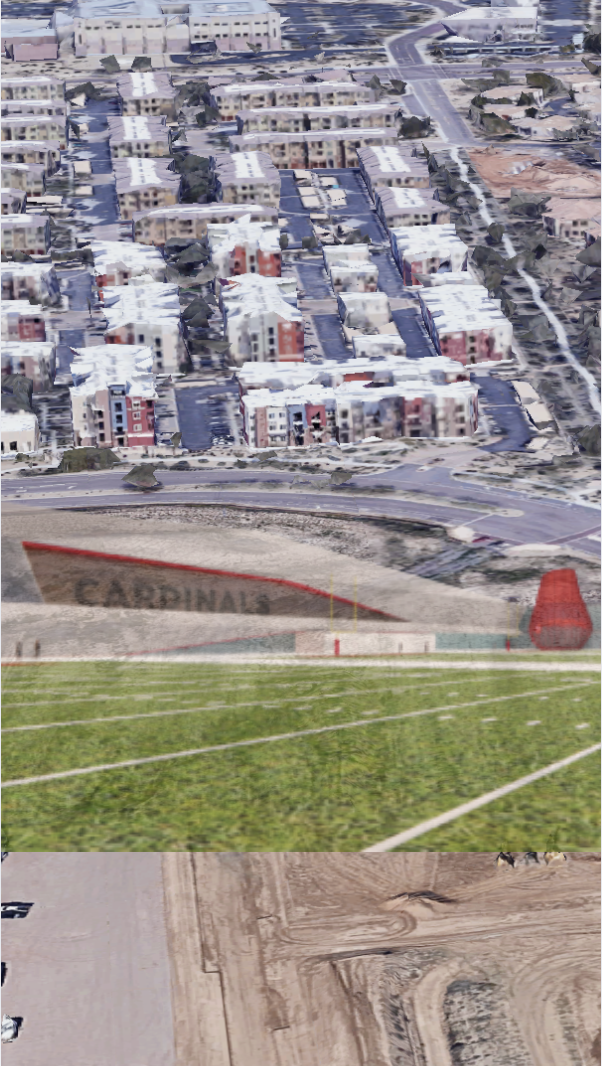
In an era when Phoenix’s downtown revitalization meshes with Camelback Corridor infill developments and Scottsdale’s burgeoning mixed-use districts, the stakes of safeguarding homeownership—and the long-term value of real estate—have never been higher. Across urban corridors like Tempe’s Mill Avenue District or suburbs edging into Paradise Valley, homeowners face complex decisions around privacy, estate planning, and intergenerational wealth transfer. Trusts are quietly becoming vital tools to navigate these challenges smartly.
Why now? Rising property taxes, evolving inheritance laws, and the push for streamlined succession planning amid shifting family dynamics give trusts unprecedented relevance. Whether you own a mid-century bungalow in Arcadia, a luxury condo near Biltmore, or a new smart-enabled build in East Mesa, understanding trusts equips you with the clarity to secure your property’s legacy. Let’s explore why this topic isn’t just legal—it’s transformational for residents seeking durability, control, and forward-thinking stewardship.
Every homeowner senses a flicker of worry—what happens to my home if I can’t make decisions? If a will triggers probate delays, creditors sniff around, or my heirs aren’t prepared? These anxieties can loom large, especially for families balancing eldercare, rising taxes, or complex property arrangements across metropolitan neighborhoods such as Roosevelt Row or North Tempe.
Fortunately, trusts step in as the trusted solution: they offer privacy, typically bypass probate, and enable you to designate how your home is handled—whether to age-in-place children, charitable causes in Chandler, or legacy projects in Gilbert. National figures show that probated estates can cost heirs 3% to 7% in fees plus months—or even years—of delay. Trusts sidestep that friction with efficiency and dignity. Understanding how they work gives you decisive peace of mind, empowering both you and those you love to focus on building equity—not battling bureaucracy.
Not all trusts are created in a similar way and very much even in thir cassifcation depends... as always. Imagine choosing between a revocable living trust, an irrevocable trust, or even a land trust—each offers distinct features that can shift your homeownership and wealth-building approach:
Each has trade-offs: revocable trusts offer control but not asset protection, while irrevocable ones trade flexibility for protection. Land trusts boost anonymity but may involve more administrative upkeep. The right choice depends on your objectives—whether it’s preserving equity, minimizing tax exposure, or ensuring seamless ownership continuity.
The landscape of legal structures designed to match very different homeowner needs. From modern Phoenix loft owners to Paradise Valley estate holders, the right type of trust can safeguard property value, streamline succession, and even shield assets from certain risks. But each variation has its own purpose, strengths, and caveats to weigh carefully. You can dive deeper and find:
Revocable Living Trusts remain the most popular among Arizona homeowners, offering flexibility and full control during your lifetime. You can alter terms, add or remove property, or dissolve the trust entirely. The main draw is avoiding probate—a major time and cost saver. However, they don’t inherently protect against creditors or lawsuits, which means while your equity flows smoothly to heirs, it may not be shielded in life from financial threats.
Irrevocable Trusts, in contrast, lock down your terms—once created, changes are difficult without consent from all beneficiaries. The payoff is significant: potential estate tax reduction, asset protection, and in some cases, eligibility for certain long-term care benefits. They’re often used by high-value property owners in places like the Biltmore Estates to preserve generational wealth. The challenge is giving up flexibility—if your financial or family situation changes, the trust terms may not keep pace.
Testamentary Trusts are embedded within a will and spring into effect only after death, commonly used to control how and when heirs access assets. For example, a Mesa homeowner might set one up to ensure a teenage beneficiary receives property incrementally over time rather than all at once. The downside? These trusts must pass through probate, so you lose some of the privacy and speed advantages of living trusts.
Special Needs Trusts serve a critical role for families with dependents who have disabilities, ensuring the beneficiary retains access to essential support without jeopardizing government assistance eligibility. While vital for protecting vulnerable family members, these trusts require precise drafting—missteps could inadvertently disqualify a loved one from Medicaid or SSI benefits.
Asset Protection Trusts are structured—often with specific jurisdictional advantages—to shield property from future creditors or legal claims. While not as common in Arizona as in certain states or offshore jurisdictions, they can be powerful for business owners or investors with higher liability exposure. However, they’re complex, carry higher setup costs, and must be established well before any legal issues arise to be effective.
Choosing the right trust is about mapping your personal goals—avoiding probate, protecting equity, caring for vulnerable family members, reducing taxes—to the right legal structure, while being realistic about trade-offs. A misaligned trust can be as problematic as having no trust at all, creating rigidity, tax inefficiencies, or unintended exclusions in your estate plan. The art is in the fit, not just the form.
Local attorneys, financial advisors, and real-estate professionals reinforce this emerging narrative. Take, for example, trusts specialist Jordan Lee of Phoenix Trust Law Group, who notes that “in neighborhoods like Arcadia and Biltmore, I'm seeing educated homeowners opting for living trusts to cut probate time to nearly zero and reduce legal fees significantly.” Meanwhile, Morgan City Real Estate Advisory highlights that “buyers in the Camelback Corridor are now valuing properties already in trust—knowing the transfer can be instantaneous at sale offers a premium.”
At the same time, estate planners like Desert Legacy Advisors in Scottsdale report that “irrevocable trusts remain under-utilized due to misconceptions about flexibility,” but they’ve recently guided several Holistic Smart-City developers toward these structures for philanthropic or tax-smart conservation purposes. These voices show trust planning is no longer niche—it’s a mainstream, strategic asset among savvy homeowners regionally.

Here are strategic steps every homeowner can take to leverage trusts effectively:
These actionable tips help translate trust theory into real, practical advantage—ensuring your home becomes both a personal sanctuary and a smart legacy asset.
Understanding trusts is more than legal paperwork—it’s a forward-looking strategy that strengthens homeownership, privacy, and equity for families across Phoenix, Scottsdale, Tempe, and beyond. While this guide lays a solid foundation, every situation is unique. A trusted, licensed estate-planning attorney will tailor trust arrangements to your personal and local circumstances. Consider this your launchpad—not the final chapter.
What might a trust enable for your family’s story? Will it preserve your home for a future generation, support a local community initiative, or simply ensure peace of mind when the unexpected arises? The right trust can make it happen—where will you start?
 Arizona Cardinals’ $136 Million “Headquarters Alley” Project: How a 217-Acre Deal Will Redefine North Phoenix by 2028
Arizona Cardinals’ $136 Million “Headquarters Alley” Project: How a 217-Acre Deal Will Redefine North Phoenix by 2028 Exploring Arizona’s Unique Land Ownership Laws: What Every Future Homeowner, Investor, And Relocating Professional Needs To Know
Exploring Arizona’s Unique Land Ownership Laws: What Every Future Homeowner, Investor, And Relocating Professional Needs To Know

 Public Safety as an Asset Class: The New Scottsdale AdvantageIn today’s Smart City economy, safety isn’t simply about peace of mind—it’s becoming a measurable, marketable asset class. Scottsdale is proving that public safety can be engineered into the fabric of
Public Safety as an Asset Class: The New Scottsdale AdvantageIn today’s Smart City economy, safety isn’t simply about peace of mind—it’s becoming a measurable, marketable asset class. Scottsdale is proving that public safety can be engineered into the fabric ofNice to meet you! I’m Katrina Golikova, and I believe you landed here for a reason.
I help my clients to reach their real estate goals through thriving creative solutions and love to share my knowledge.

